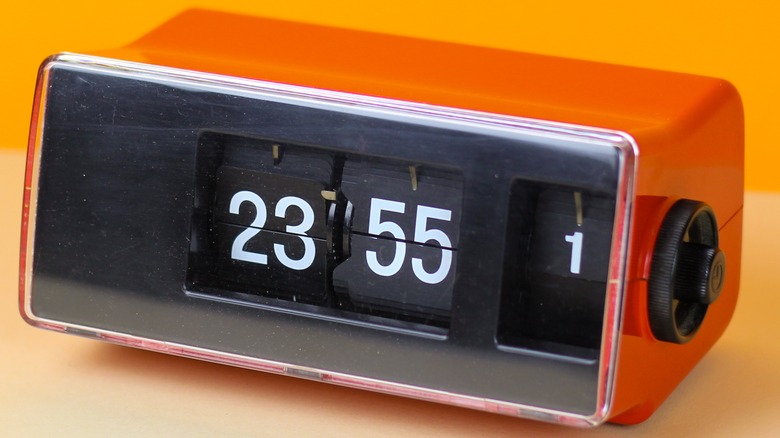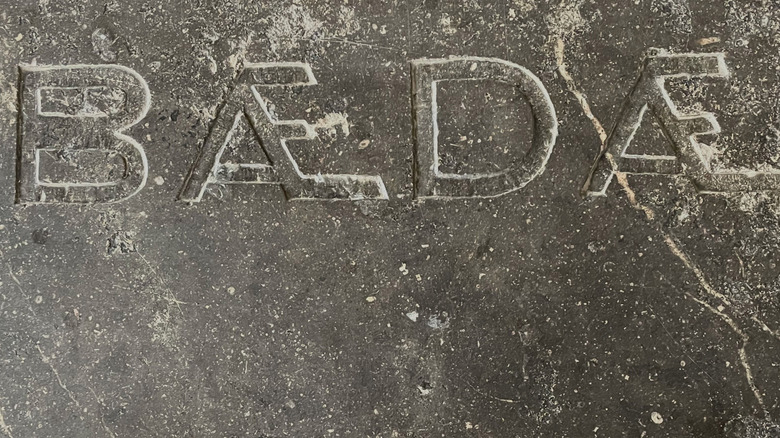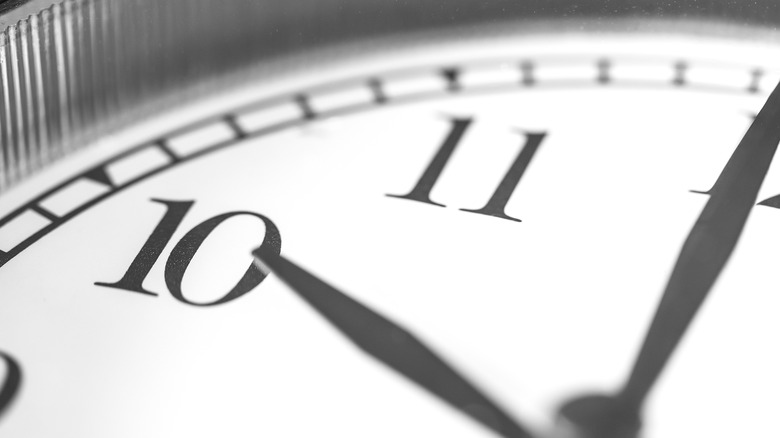This Is How Long A Moment Is, According To Science
Time is a curious thing, isn't it? It's all relative. Five minutes can feel like an incredibly brief amount of time. For instance, if you're exhausted and you're woken from a nap after five minutes, that's worse than no nap at all. However, it can also feel like an eternity. If a stranger in a train carriage stares at you without blinking for five minutes, that's at least four minutes and 59 seconds too long.
We're the only species on Earth that has a firm grip on time and what it all means. Yes, a pet dog will be the first to let you know if their usual dinner time has passed and their bowl remains empty, but the finer points of scheduling and such seem to only be known and understood by us. As How Stuff Works reports, dogs experience time differently — according to their bodies.
Meanwhile, our lives are governed by timetables, deadlines, and alarms we've set. It's not quite clear why we've collectively chosen to do this to ourselves, but one thing is certain: Even our understanding of the intricacies of time isn't as sophisticated as it could be. Many don't know, for instance, that a "moment" was originally the term for a specific period of time.
Just a moment?
Today, we tend to think of a moment as an unspecified (yet short) period of time. A frustrated teenager might announce that they'll be ready for breakfast "in a moment," despite the fact that they haven't even emerged bleary-eyed from their beds yet. A moment, in short, could be a minute, five minutes, or another hour. The joy of the moment is in its vagueness, and it's exactly this that allows us to throw the word around in any and all situations.
That's just the way languages change and evolve over time, though. According to Merriam-Webster, the word once had the now-obsolete meaning of "a cause or motive of action," but is generally understood today to mean "a minute portion or point of time" or "a time of excellence or conspicuousness."
Saint Bede the Venerable, Britannica reports, was born in 672 or 673. His writings such as "Historia ecclesiastica gentis Anglorum" (Ecclesiastical History of the English People) shaped and continue to shape scholarly understanding of the period in which he lived, and how it was researched and studied during his time. There was yet another thing Bede provided during his lifetime, however: he set a specific period of time for a "moment." Here's what it is, according to science.
Saint Bede's definition
BBC Science Focus reports that, for Bede, a moment was surprisingly long. We might tend to think of a moment as a brief, significant flash, but Bede seemed to define them very specifically: a unit of time that was 90 seconds long.
An hour, then, Atlas Obscura continues, can be divided into 60 seconds or 40 moments. In "Bede, The Reckoning Of Time," Faith Wallis writes, "Ancient sundials were divided into twelve equal segments, so that the entire span of daylight, be it long or short, was divided into twelve hours." Bede differentiated between these and what he deemed "equinoctial hours," a constant one-twenty-fourth of a day.
Methods of recording and measuring time aren't always constant, and even today's clocks tend to need resetting and re-adjusting. The curious thing, though, is that moments used to be far more clearly defined. While you won't literally be "just a second," you actually might only be a moment, after all.


